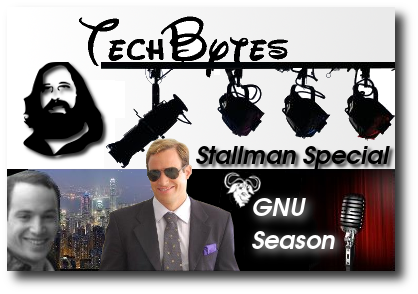09.17.13
Posted in America, Patents at 9:43 am by Dr. Roy Schestowitz

Summary: The world is trying to tackle patents on algorithms, whereas the US, which is unique on that matter, mostly focuses on trolls (scale of plaintiff) and not patent scope
In our latest update from NZ (see some recent history) we mentioned the reversal of a move which nearly brought software patents to the island, a former British colony which nowadays seems to be getting its commands from the United States (this includes national policies and surveillance). As the British Pirate Party put it:
Its not often that we see positive reforms of copyright or patent systems, in fact the vast majority of changes that we see are tightening of regulations, a tightening that is too often driven by corporate lobby groups over the objections of innovators, developers and creators. It seems like an ever rising tide of restrictions, covering more and more areas, limiting what any of us can do, reuse or build upon.
Well that tide seems to be on the verge of turning. Not in the UK yet perhaps, but certainly in New Zealand. The long awaited Patents Bill, amending legislation from 1953, has been passed in New Zealand. It is a bill has been a long time coming, first proposed in July 2008, it was met with intense lobbying from multinationals and spurred almost 5 years of debate and controversy.
Meanwhile in the United States, following the GAO’s already-distorted report which calls for the end of software patents we find Red Hat’s lobbyist Mark Bohannon (officially “Vice President of Corporate Affairs and Global Public Policy at Red Hat”) shifting attention to patent trolls:
During the August Congressional recess, the Government Accountability Office (GAO) released its long-awaited study on Non-Practicing Entities (NPEs), required under the America Invents Act (AIA).
The report paints a rather grim picture of the current patent system. It reinforces the call by key leaders in Congress for legislative reforms that address abusive patent litigation as well as action by the Federal Trade Commission (FTC), the courts, and the US PTO.
The truly interesting point of this report is the issue of patent scope, not trolls. As Mr. Pogson, a Canadian, put it, this reports represents what he called the “Death-Spiral Of Software Patents”. To quote his short analysis:
The US GAO has studied the matter and software-patents stick out like a sore thumb. They just don’t make any sense in the modern world. They are sand in the gears of progress. They are knee-deep syrup on the race track. Their report does not ensure elimination of software-patents but I expect something clarifying SCOTUS and GAO findings will emerge and bring US R&D back onto a firmer footing.
The continued obsession with patent trolls in the US (this does not happen in Europe and NZ, where focus remains on software patents) will be further tackled in the next post. █
Permalink
 Send this to a friend
Send this to a friend
09.12.13
Posted in GNU/Linux, Kernel, Microsoft at 11:17 am by Dr. Roy Schestowitz
Microsoft’s Elop pulls a Bellouszo. As the first non-Finn to be named CEO of Nokia (founded in 1865) he kills the most famous company in this nation of Linux, which was also a leading Linux contributor

Summary: Nokia officially assassinated by Microsoft, with a Canadian citizen who organised the coup now set to return to Microsoft’s headquarters
Stephen Elop never left Microsoft. We knew this all along. “Once the transition is finalized,” to quote Wikipedia, “Elop will become an Executive Vice President at Microsoft.” Elop was an appalling, dangerous, malicious mole all along.
Here is an article which explains why Nokia didn’t sell its patents to Microsoft:
Nokia may have sold its handset business to Microsoft Corp, but by hanging on to its valuable patent portfolio, the Finnish company could also get a big future payoff at the expense of Android phone makers.
A key part is this: “Microsoft agreed on Tuesday to pay 3.79 billion euros ($5 billion) for Nokia’s handset business and another 1.65 billion euros for a 10-year license for Nokia’s patents” (this is symbolic invitation for coming extortion/shakedown of Android vendors).
Here is how the excellent patent trolls journalist put it:
Nokia confirms: Patent attacks may continue after Microsoft purchase
Patents remain with Nokia, meaning Android handset makers may get sued twice.
The Microsoft Mafia always manages to get away with racketeering. Too big to jail.
Nokia becomes just a patent troll based on the article titled “There will never be another Nokia smartphone” and prior to it Nokia was a feeder of patent trolls like MOSAID and Vringo, with Microsoft’s public involvement in passage of Nokia patents.
Where are the regulators? Google did file some complaints, but not much has been heard about them since.
Microsoft decided to just send a mole to take over Nokia’s business, abolish Linux there (Nokia had become one of the top Linux contributors), remove any chances of Android adoption there, then feed trolls to attack Android and sue Android directly.
According to the New York Times, Mr. Elop’s “family still lives in the Seattle area” (how telling).
“Early on there were a number of interesting comments,” wrote iophk, and a few shills, in the Slashdot discussion but now the moderation no longer reflects that. For instance how will this shuffle hide Mokia’s / Windows Phone losses as Microsoft pays $1 billion a year?, Elop never sold his Redmond house nor moved his family to Finland. ‘a brief history of Elop’ asks whether he tried to do the same inside Juniper and Adobe but failed.
Like Ubuntu’s manager who lives in Seattle (after working for Microsoft) what we seem to have here is satellite management. European companies are being managed from Microsoft’s home city.
Simon Phipps is upset at the Nokia sale, noting quite correctly that patents are the problem:
Microsoft plus Nokia: Pending patent troll?
Nokia’s large patent portfolio could be a powerful weapon in Microsoft’s war on archrival Google
Tomi Ahonen is obviously upset at Elop, one of the most insidious moles in recent history (and a destroyer of companies). To quote Ahonen:
Worst CEO ever? You make the call. Was Nokia smartphone unit truly in catastrophic trouble before the Burning Platforms memo? You make the call. Did the Elop Effect turn strong growth into collapse? You make the call.
Ahonen also starts a post by quoting a good observation:
Elop killed Nokia twice: First by announcing the move to Windows Phone 9 months before they could deliver, and again by announcing that no more MeeGo phones would be produced the day after the first MeeGo phone was released to extremely positive reviews.
Microsoft’s phone ambitions are similarly doomed because buying Skype caused most if not all of the global carriers to despise Microsoft, and by association Nokia. This will only get worse as time goes on, since Microsoft/Nokia just became Microsoft and any residual good will from Nokia is gone. Without carrier support, Microsoft can’t succeed in those markets.
Not everyone is reporting on this correctly though. There is a lot of spin from Microsoft-friendly writers. Olli Sulopuisto, writing for ZDNet, is one example of this. “No mention of Jolla or Newkia,” iophk noticed (Newkia was poised “to rise from Nokia’s ashes on Android wings,” said a sister site). “The press seems to insist on promoting Microsoft, even getting help from the trade union rep who should know better.” There is “again revisionism as to the reasons for the fall of Nokia,” as iophk from Finland put it. He added: “This week’s “Suomenkuvalehti” magazine has on its cover the grave of a Nokia phone with the caption “1987-2013″. Last night a comedy program had a session where a guest smashed a series of Lumia phones on an anvil using a sledgehammer. I realise the Finns are in love with Microsoft and worship Gates, but I hope they can finally connect the dots on this one and fight back. Nokia really started on an irrevocable slide when they started using Outlook-Exchange internally. In principal, that gave full access to their internal communications to Microsoft, if Microsoft had been so inclined. (As it appears it was.) On the other hand, Linux, the kernel itself, was started in Finland after all even if Linus did eventually move away. So moving to Gnu/Linux should be seen as patriotic and Windows users a bunch of quislings who supplied funding for the destruction of Nokia.”
Watch this cartoon about Nokia to better understand what Microsoft did here.
What Microsoft did here is a “hostile takeover,” noted iophk, citing this comment. “Microsoft should be punished but let Nokia go, it is dead since Elop killed it. Are there grounds for a suit against Microsoft or even against Elop himself?”
The moral of the story is simple. Microsoft is a criminal company and an entity too big to jail. In its attempt to remove Linux from the world it has just killed the most famous Finnish company, which was also one of the biggest developers of Linux until a couple of years ago (not to mention the country of origin of Linux). █
Permalink
 Send this to a friend
Send this to a friend
Posted in GNU/Linux, Google, Microsoft, Patents at 10:41 am by Dr. Roy Schestowitz
Mary-Claire King: paid by Bill Gates, fighting against Linux

Image from mit.edu
Summary: More Microsoft executives are leaving and more moles are identified, even in patent cases which challenge the future of Android/Linux
NOT many would oppose the view that Microsoft is a company that’s going away. It is shrinking in terms of impact factor and hostile takeover of competitors is the only innovation it has had since around 2006 (Novell) or 2008 (Yahoo!).
“What’s behind Microsoft’s fall from dominance” is the title of this new article from Barry Ritholtz. It has become clearer that the cult Gates helped create is turning more and more into patents and trolling, as seen clearly in Gates’ and Allen’s own activities (both are trolls or publicly supportive of trolls). “When the monopoly goes,” explains iophk, “so will the monopoly rents. That’s where Microsoft gets most of its profit and the initial drop will be sudden. It appears to be starting to happen.” The above article mentions “(now slipping into third place) Windows” (number one is a Linux-based platform).
“However,” notes iophk, “1st loss was not in 2012 but in 1998, according to The Economist. This article vanished quickly from Google’s news feed.” We wrote about this before. Microsoft is seemingly another Enron and it did get caught although it bribed the messengers and the regulators over a decade ago. “Too big to jail” comes to mind.
Anyway, joining the long list of high-level executives who fled Microsoft we now have its Channel Chief. To quote a new article:
Microsoft‘s current channel chief Jon Roskill is out and looks set to be replaced by US Small and Midmarket Solutions and Partners (SMS&P) Group boss Phil Sorgen, next week.
The main problem is, when these people leave they often become Elops, i.e. moles in rival companies. The phenomenon is well understood based on history of Microsoft executives who left. To give a new example from a slightly old paper, “six out of eight authors are Softers with two sellouts from Oxford,” iophk wrote about this publication, adding: “it’s bad that Science is getting infiltrated. Seems to have missed peer review totally. Maybe control over editors or too ignorant editors.”
Why does that matter so much? Well, now that Microsoft is getting more and more into the patent litigation business we see that even the courts are being infiltrated by Microsoft moles, who tilt decisions in Microsoft’s favour.
Watch how the Gates-funded Seattle Times (through the Gates Foundation) uses the Microsoft booster (“Microsoft Pri0″) to groom a “renowned geneticist” rather than focus on the connection to Bill Gates. This is a case against Linux and Android. Conflict of interest much? The Microsoft booster said the trial “delivered a unanimous verdict in favor of Microsoft,” but it did not name the Gates connection. As Pamela Jones, who has not exactly stopped writing in Groklaw, put it the other day: “A “presiding juror” is a new phrase to me, as you normally see foreman or foreperson. The judge presides, not the juror. However, there’s more. Note the following for context regarding Ms. King’s connection to Microsoft: 1) She got her position, according to the U of Washington itself thanks to money from Bill Gates:
“”We were very excited at the opportunity to recruit Mary-Claire,” says Paul Ramsey, chairman of the Department of Medicine. “We’re pleased with the interactive nature of her position, with her joint appointment in the College of Arts and Sciences, where she teaches undergraduates, as well as her primary appointment in medical genetics.” In the view of both Leroy Hood and Maynard Olson, enticing King to the UW can be attributed in part to the $12 million donated in 1991 by Microsoft CEO Bill Gates to launch the Department of Molecular Biotechnology. “The seed money from Bill Gates has helped attract a number of people here,” says Hood. “If seed money is used effectively, the programs can pay for themselves with external grant money,” says Olson. “But there’s no way to get into the game without the seed money. It’s a genuine success story.”
“It is not the first time Microsoft has given money to the U. of Washington, as you can see here and here. Here the two are advertised as star speakers at the same Seattle science conference back in 1997. One might, therefore, question her being on this particular jury.”
This system is corrupt and moles of Microsoft and Gates continue to tilt it against Free software; whether we choose to pay attention to it or not would affect the outcome. █
Permalink
 Send this to a friend
Send this to a friend
Posted in GNU/Linux, Hardware, Microsoft at 10:07 am by Dr. Roy Schestowitz
Microsoft has broken platform bridges like GRUB

Summary: How Microsoft’s fight to complicate GNU/Linux booting can be challenged, essentially by making it clear that GNU/Linux is the favoured choice
LAST week I happened to install Kubuntu through Wubi*, a useful tool which Canonical is making deprecated.
About a year ago Microsoft introduced UEFI restricted boot in an attempt to make it harder to change so-called “Windows PCs” (tying software to hardware) into GNU/Linux-running PCs and based on some new posts this continues to pose issues or complications for users of Ubuntu and its derivatives, despite Canonical playing along with Microsoft. For those who didn’t know that Microsoft is a terrible partner perhaps this would be a wake-up call.
Clearly enough, “it is the OEM monopoly that is keeping GNU/Linux from being widespread on the desktop,” iophk explained, citing this new article titled “Linux is clearly the superior operating system”. To quote one key part:
With all due respect, my colleagues are wrong. Linux is hand-down the best option for computing. It isn’t even a competition. Neal Stephenson said: “Macs are hermetically-sealed sedans that look great and have a lot of advertsing. Windows machines are big SUVs that break often, but they’re everywhere and everyone knows how to use them. Linux computers are free tanks that go 90 mph in swamps, get 100 mpg and never break down.”
Jim Lynch, a frequent reviewer of GNU/Linux distributions for around half a decade now, responds in IDG:
Is Linux the best operating system?
Today in Open Source: Is Linux the best operating system?
[...]
He makes a strong case for Linux, and while I mostly agree with the article’s take, I’m still very hesitant to declare a “best” operating system. Why? The choice of an operating system depends so much on the individual user’s needs. This can vary quite a bit depending on the person.
While this may be true, it is important to bear in mind that even Android is in some sense a distribution — one that most of my family has absolutely no problems with. The myth of GNU/Linux as the “hard choice” or the “still catching up” platform continues to plague the press and leads to a shallow consensus which lets Microsoft get away with hardware-software tie-up (as in UEFI restricted boot). If regulators accept that the bundling imposes a worse choice on all buyers, then regulatory action will be easier to make a success. There are already formal complaints about UEFI. █
___
* It is a laptop which comes with Windows and it is still being prepared to function as a replacement workstation here.
Permalink
 Send this to a friend
Send this to a friend
09.11.13
Posted in Free/Libre Software, GNU/Linux, Hardware, Windows at 4:05 pm by Dr. Roy Schestowitz

Unlock PC from the OS
Tere is how to do it;
Step 1, manufactures of physical hardware shall adapt an “OUHP” (Open Universal Hardware Protocol), so that every OS can make use of the SAME hardware drivers regardless of the OS brand.
Step 2, include in the PC physical hardware a replaceable memory module storage system that stores the hardware drivers and a “boot loader GUI”. The hardware drivers should always remain with the PC physical hardware in a protected environment away from the OS.
Benefits are faster loading drivers, as compared to how UEFI loads drivers on slower memory. Other advantages are better security (firmware), not compromised by the software layer of an OS and the choice of running any OS on the hardware.
This makes possible the ability to run any OS on your hardware, and allowing the user to run your software in the OS environment on any PC in the world that supports the universal hardware protocol, giving the user choice and freedom.
Unfortunately, Microsoft would never accept an open honest universal standard that everyone (all software developers) could use freely without restrictions; given how Microsoft can only compete when the customers cannot choose.
What would YOU rather buy;
- A device locked into a monopolized market forcing their brand upon you or;
- an open platform that allows any OS of your choice to run your software on any PC system in any language globally.
What do your readers think about this idea of unlocking the PC from the OS?

I would like to offer another project I am working on, thinking some of your readers might be interested in know about my RDSS – “Relevant Data Storage System” idea.
Why do we need a more relevant storage file system?
So the PC user won’t be required of a “forced remembrance” of the navigation address of folder/file names in a hierarchy for later data acquisition that was created by different people at different times using different languages.
When another person joins a multi user networked system, they wouldn’t know the files names or the location of where those files were stored by the other individual/s before them. Who is to say that the creator of those files or data was ever assigned a proper “coherent” name for those files/data, right?
So what happens when the PC users/operators include “non-native” speakers?
My idea is simple, data shouldn’t be stored by human “designations” as file names. The solution is to make the software application assign a value to that data and then store the data where it would best function in terms of both recall, relevancy and distribution.
This is actually easy to do, if the data includes “meta tags”, making possible for the OS and the application layer to recall your relevant data. Software applications would become smarter, helping the user label their data properly for relevancy, recall and distribution automatically.
Instead of seeking data by using pathways, human beings would be freed to think in their own natural thinking process. The data is recalled by the user for the relevancy of their data, rather than by the pathway, navigation or hierarchy.
Which method would you value more;
- a method of “forced remembrance” by all users to locate each other’s data by using pathway hierarchies or;
- a method of recalling only “relevant data” by using “relevancy”!
Benefits of my “Relevant Data Storage System” is that the only thing the PC user needs to know is the relevancy of they data! No need to hunt around, where did I put that file? I don’t remember the file name! What to do? OMG!
Surely, it makes more sense to match the method of recalling data by using a more natural human process, and is why ICANN adapted the method of assigning IP Addresses with “names” so people could more easily access sites online as an example.
What do your readers think about this idea of applying relevancy to recall relevant data as compared to the forced remembrance of finding user data using folder/file pathways? █
Permalink
 Send this to a friend
Send this to a friend
09.05.13
Posted in TechBytes Video at 10:32 am by Dr. Roy Schestowitz

Direct download as Ogg (00:05:02, 16.8 MB)
Summary: Dr. Richard Stallman, the Free Software Foundation’s founder, explains how plutocrats control society
Made entirely using Free/libre software, heavily compressed for performance on the Web at quality’s expense
Permalink
 Send this to a friend
Send this to a friend
« Previous Page « Previous Page Next entries »
























 Content is available under CC-BY-SA
Content is available under CC-BY-SA